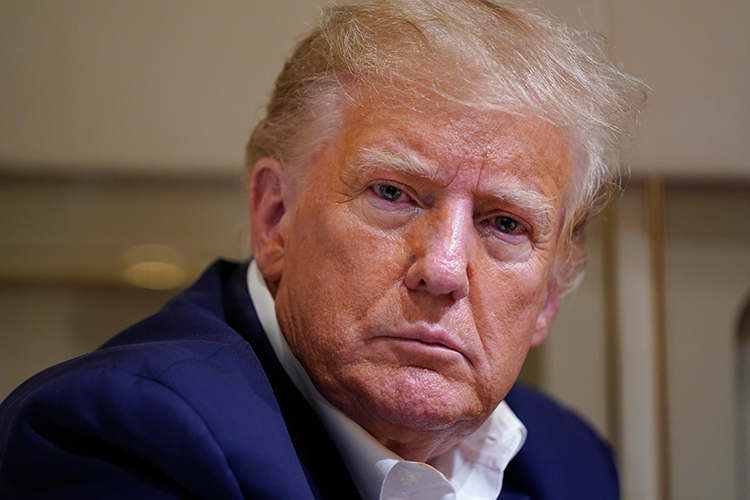Why Trump could be charged with a civil rights violation in Jan. 6 investigation

Three criminal statutes were reportedly listed in a letter informing former President Donald Trump that he is a potential target in special counsel Jack Smith’s investigation of Trump’s attempt to stay in office after losing the 2020 presidential election. Photo by Evan Vucci/The Associated Press.
A possible charge in the special counsel’s investigation of former President Donald Trump is a violation of a civil rights statute that has been used in the past to prosecute vote fraud.
Three criminal statutes were reportedly listed in a letter informing Trump that he is a potential target in special counsel Jack Smith’s investigation of the former president’s attempt to stay in office after losing the 2020 presidential election, the New York Times has previously reported.
Now, the New York Times is taking a look at one of those statutes, Section 241 of Title 18 of the U.S. Code. Edward A. Purcell Jr., a professor at the New York Law School, also considered a possible charge under the statute in a November 2021 op-ed for Slate.
Section 241 was enacted after the Civil War to aid federal prosecutions of Ku Klux Klan members and others trying to stop Black voting.
“But in the modern era,” the New York Times reports, “it has been used more broadly, including in cases of voting fraud conspiracies.”
“The modern usage of the law raised the possibility that Mr. Trump, who baselessly declared the election he lost to have been rigged, could face prosecution on accusations of trying to rig the election himself,” the New York Times reports.
Section 241 makes it a crime for two or more persons to “conspire to injure, oppress, threaten or intimidate any person” in the “free exercise or enjoyment of any right or privilege secured to him by the Constitution or laws of the United States.” Violation of the law can be punished by a fine or imprisonment for up to 10 years.
The stories cited two decisions that have upheld use of Section 241 in cases involving falsely tabulating votes or casting fake votes. They are:
- Prichard v. United States (1950), in which the 6th U.S. Circuit Court of Appeals at Cincinnati said Section 241 could be used to prosecute ballot stuffing because the practice “dilutes the influence of honest votes” and the right to an honest count held by each elector.
- Anderson v. United States (1974), in which the U.S. Supreme Court said Section 241 could be used to prosecute the fake casting of votes on a voting machine. The law can be used to prosecute conspiracies intended “to dilute the value of votes of qualified voters,” the Supreme Court said.
The constitutional provisions at issue are the right to equal protection in the Fifth and 14th amendments, Purcell said.
“The clauses require action under color of law, as well as an intent to violate them, and here, both of those requirements are met,” Purcell alleges. “Trump and his co-conspirators exploited their governmental authority in attempting to bulldoze state officials and the vice president to join them in effectuating their scheme. Similarly, their public and private actions and statements reveal their driving intent to deny the import of millions of votes in order to overthrow the results of the presidential election.”
See also:
ABAJournal.com: “Trump gets bad news on election probes from special counsel Jack Smith and Georgia Supreme Court”



